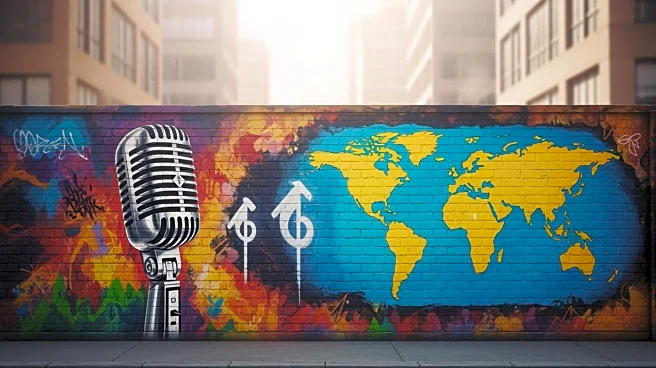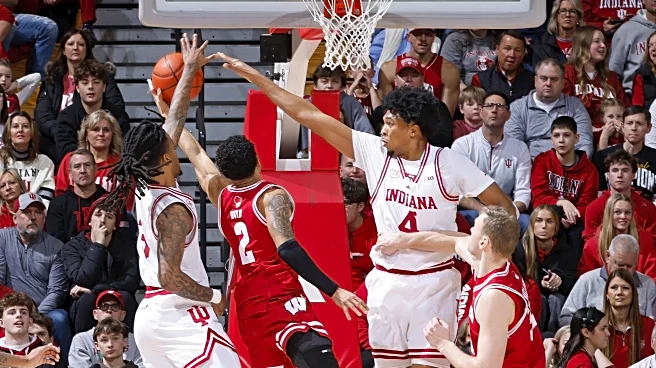What's Happening?
The podcast series 'LOUD: The History of Reggaeton' explores the genre's evolution from its roots in Panama and Puerto Rico to its global influence. Hosted by Ivy Queen, a pioneer of reggaeton, the series traces the genre's development through key moments
and figures. Reggaeton began as an underground movement in Puerto Rico, influenced by Jamaican dancehall and hip-hop. Over time, it gained mainstream popularity, with artists like Daddy Yankee and Tego Calderon bringing it to international audiences. The series highlights reggaeton's cultural impact and its role in addressing social issues.
Why It's Important?
Reggaeton's journey from underground music to a global phenomenon underscores the genre's cultural significance and resilience. It has provided a platform for artists to address social and political issues, using music as a form of protest and expression. The genre's success reflects the growing influence of Latin music in the global market, challenging traditional music industry norms and opening doors for diverse voices. Reggaeton's ability to adapt and evolve has been crucial to its sustained popularity and relevance.
What's Next?
As reggaeton continues to gain global traction, it is likely to influence other musical genres and inspire new artistic collaborations. The genre's expansion into new markets, such as Asia, presents opportunities for further growth and innovation. Artists and producers will continue to experiment with reggaeton's sound, incorporating elements from other genres to keep it fresh and appealing to a broad audience. The genre's future will likely see a balance between commercial success and maintaining its original rebellious spirit.
Beyond the Headlines
Reggaeton's rise highlights broader cultural dynamics, including the blending of musical traditions and the role of music in social change. The genre's history is intertwined with issues of race, identity, and resistance, offering insights into the experiences of marginalized communities. As reggaeton continues to evolve, it may serve as a model for other genres seeking to navigate the complexities of cultural exchange and globalization.














